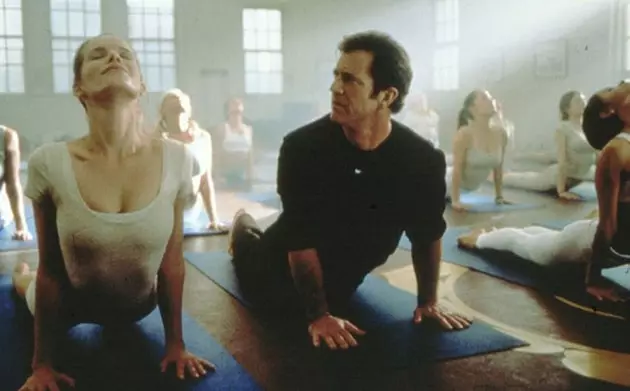
What do they have on Sundays?
"Although it is not a psychological disorder officially recognized by psychologists and psychiatrists, and it is not listed in diagnostic manuals, There is more and more talk about this discomfort characteristic of the last hours of Sunday called Sunday afternoon syndrome ", explains Doctor Francisco Montesinos, Specialist in Clinical Psychology and professor at the European University of Madrid.
Loss, emptiness, sadness, worry or anxiety. Do they sound like you? You just visualized yourself on any given Sunday, thinking about how quickly the weekend passed and counting the hours until the alarm clock rings. If it weren't for the fact that you are an adult, full-fledged, a person who is presupposed of security and who knows what he has to do at all times, you would cry from the rooftops that: "Mom, I don't want to go to school! (well to work) !". This discomfort can be aggravated "if the weekend has not turned out as we expected" , emphasizes Montesinos.

And you see yourself counting the hours until the alarm clock rings
WHY IT HAPPENS
Psychologist Jaime Burque attributes this state to various factors. On the one hand, cultural because "it is insisted that Monday is the worst day of the week and this ends up affecting us". On the other hand, biological, since " during the weekend we change our biorhythms and we break the stability of the week, making Monday cost more." And, finally, the psychological: "it usually happens to people who have a negative attitude towards their work , some problem or that they don't like".
And it is that "those people whose work or academic life is not satisfactory they live Sunday afternoon with tension and with the anticipatory anxiety of what awaits them the next day in the morning ", points out Amable Manuel Cima Muñoz, professor of the Department of Psychology of the Faculty of Medicine of the CEU San Pablo University.
Anticipating is in the nature of being human. It is normal. It allows us to anticipate problems and find solutions to existing ones. However, sometimes This ability can lead us to have a hard time before its time and to project ourselves into situations that we imagine are tougher than they will ultimately be. with negative and catastrophic thoughts. "It is easy that, from the 'lookout' on Sunday afternoon, the week that has not yet begun seems 'a world' to us, so that let us perceive the accumulation of obligations and responsibilities of the week as something incomprehensible" , indicates Montesinos.

That moment when the week makes you a world
IS IT SHARPENING AFTER A TRIP?
The experts highlight the importance of enjoying our leisure time and underline the healthy nature of traveling from a psychological point of view: it is a source of experiences, learning and rewards. As Burque explains, a trip is usually a very intense experience, which corrupts our schedules and represents a total break with routine, especially if we don't like our work. "A change of scene is very good, although we have to assume that the more exceptional and pleasant the experience, the harder the return to normality will be ", assures Montesinos.
"If we have enjoyed visiting different places than usual, talking to different people, gastronomy, culture, leisure or physical exercise, It is possible that we perceive a clear contrast between these very rewarding experiences and the effort involved in routine, everyday life or work ", he adds.
Professor Cima Muñoz underlines the importance of the post-trip to avoid contrast discomfort. " It is a moment of remembrance of the good moments lived and an element of hybrid motivation (of the person himself and of the situation of enjoying traveling), which gives rise to the person already planning his next getaway or his trip".

The contrast between the trip and the return to reality
HOW DO WE AVOID THE SUNDAY SLOWDOWN?
Doctor Montesinos prefers to talk about managing it, instead of avoiding it, and emphasizes the downtime that usually accompanies Sunday afternoons. It's in those lonely times when frustrations, worries and sources of stress can come upon us make those hours the time of the week when we face our ghosts.
"It can be very useful plan ahead for weekend activities . Not leaving everything to chance can help us get more out of our time. Keeping ourselves busy doing what we like the most will help us feel more satisfied at the end of Sunday," says Montesinos.
In this sense, Burque points to the possibility of "include positive Sunday routines like going for a run" and points out the importance of "being aware of what problems you have regarding work or the week to work on them" and also work on certain attitudes, such as negative anticipation. In addition, we can always look for ways to get excited about the week that begins. One way is "back on Monday special: You can meet a friend for lunch on Monday so you can look forward to the prospect of Monday.

evenings with friends
WHAT IF YOU HAVE BEEN CAUGHT OFF?
Management work is fundamental again to avoid losing Sunday afternoon and not enjoying it. For this you have to "learn to live in the present, work mindfulness" , emphasizes Burque. That is, "being able to be more focused on the here and now, without letting sadness, worry and our anticipatory mind take us away from the present. To achieve this, it can be very useful to learn meditation or mindfulness techniques from an expert. ", recommends Montesinos.
Follow @mariasanzv

Something like that, but concentrated
